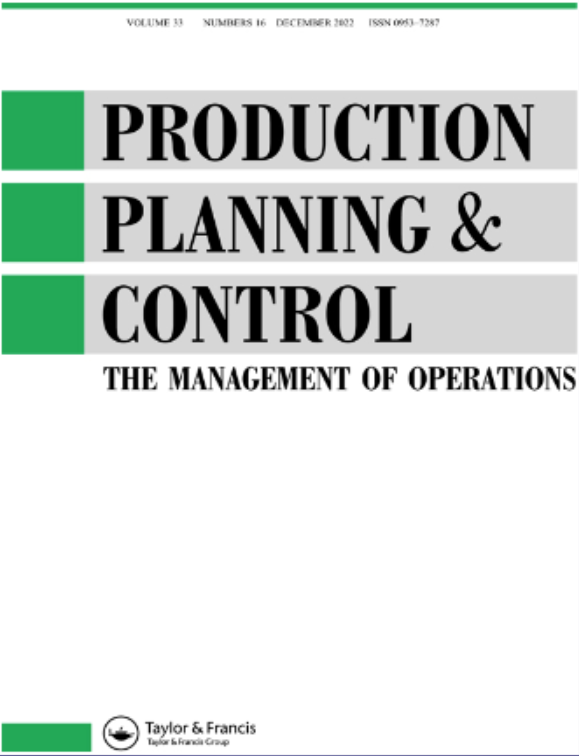Industry 4.0 digital transformation and opportunities for supply chain resilience: a comprehensive review and a strategic roadmap
IF 5.4
3区 管理学
Q1 ENGINEERING, INDUSTRIAL
引用次数: 3
Abstract
Despite interest in opportunities that Industry 4.0 offers for Supply Chain Resilience (SCR), little is known about the underlying mechanisms for such contributions. The study develops a roadmap that explains how supply chains can capitalize on Industry 4.0 SCR functions. The study conducted a content-centric literature review and identified 16 functions through which Industry 4.0 enhances SCR. Results reveal that the Industry 4.0 SCR functions identified are highly interrelated, and supply chain members should align their digitalization strategies with the sequence in which Industry 4.0 delivers these functions. Industry 4.0 contribution to SCR first involves delivering data-centric functions such as supply chain automation, information and communication quality, process monitoring, and visibility. Industry 4.0 further allows supply chain partners to collaborate better on improving supply chain mapping, complexity management, and innovation capabilities. Through these functions and by increasing transparency, flexibility, and agility of supply chain operations, Industry 4.0 delivers more dependent but consequential resilience functions such as supply chain responsiveness, adaptive capability, and continuity management. The roadmap further explains how each pair of Industry 4.0 SCR functions mutually interact while contributing to the overall resilience of the supply chain. The study discusses possible implications and outlines important avenues for future research.工业4.0数字化转型和供应链弹性的机遇:全面回顾和战略路线图
尽管人们对工业4.0为供应链弹性(SCR)提供的机会感兴趣,但对这种贡献的潜在机制知之甚少。该研究制定了一个路线图,解释了供应链如何利用工业4.0 SCR功能。该研究进行了以内容为中心的文献综述,并确定了工业4.0增强SCR的16个功能。结果表明,确定的工业4.0 SCR功能是高度相关的,供应链成员应将其数字化战略与工业4.0提供这些功能的顺序保持一致。工业4.0对SCR的贡献首先涉及提供以数据为中心的功能,如供应链自动化、信息和通信质量、过程监控和可见性。工业4.0进一步使供应链合作伙伴能够更好地协作,改进供应链映射、复杂性管理和创新能力。通过这些功能以及提高供应链运营的透明度、灵活性和敏捷性,工业4.0提供了更多依赖但相应的弹性功能,如供应链响应能力、自适应能力和连续性管理。该路线图进一步解释了每对工业4.0 SCR功能如何相互作用,同时有助于供应链的整体弹性。该研究讨论了可能的影响,并概述了未来研究的重要途径。
本文章由计算机程序翻译,如有差异,请以英文原文为准。
求助全文
约1分钟内获得全文
求助全文
来源期刊

Production Planning & Control
管理科学-工程:工业
CiteScore
19.30
自引率
9.60%
发文量
72
审稿时长
6-12 weeks
期刊介绍:
Production Planning & Control is an international journal that focuses on research papers concerning operations management across industries. It emphasizes research originating from industrial needs that can provide guidance to managers and future researchers. Papers accepted by "Production Planning & Control" should address emerging industrial needs, clearly outlining the nature of the industrial problem. Any suitable research methods may be employed, and each paper should justify the method used. Case studies illustrating international significance are encouraged. Authors are encouraged to relate their work to existing knowledge in the field, particularly regarding its implications for management practice and future research agendas.
 求助内容:
求助内容: 应助结果提醒方式:
应助结果提醒方式:


